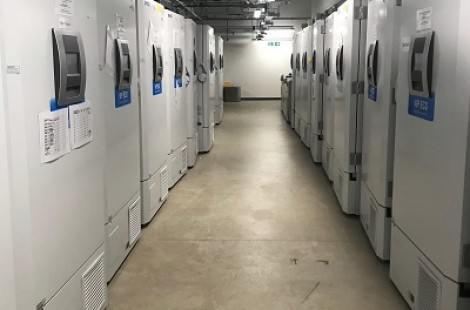
The Gateway funding I received enabled me to support myself during my internship. I completed the Fluorinated Gases internship, which was an 8-week project with the University’s Sustainability Team.
The aim of my internship was to quantify the amount of fluorinated gases (F-gas) emitted by the University’s estate and also to establish better reporting processes with a view to publishing this figure annually. The F-gases concerned in my project are hydrofluorocarbons, perfluorocarbons and sulphurhexafluoride and understanding our F-gas emissions is important as they have high global warming potentials (GWPs). GWP is a measure of a greenhouse gas’ ability to trap heat compared to carbon dioxide and F-gases have GWP values ranging from a couple hundred times to several thousand times more potent - for example, sulphurhexafluoride has a GWP of 22,800. Hence, these significant GWP values indicate why it’s important for the University to understand its emissions and, moreover, being aware of these emissions will inform the University as to whether F-gases should be included in their Scope reporting.
With this remit established, I undertook the project and it quickly became apparent that the scale of the task was much larger than expected as, though some relevant data existed, the majority of data was dispersed and incomplete. F-gases are present in three main areas across the university - in air conditioning units and chillers, in departmental owned assets like -80 freezers and for academic/research purposes. As a result, I had to adopt different approaches and problem solve in order to estimate the quantity of F-gas contributed by each area and the amount leaked. My daily activities included regular meetings with other interns to provide updates on our projects, conversing with stakeholders and processing large volumes of data. I also gained experience of presenting to a professional audience as well as creating an end of project report.
I was ultimately successful in completing my internship as, by the culmination of it, I exceeded the project objectives. In addition, I was also able to suggest better approaches which will help when quantifying F-gas emissions in the future and I created resources which should also aid this process.
This experience was invaluable to my professional development and would not have been possible without the Gateway Funding which allowed me to stay in College for the duration of my internship. I was able to arrange meetings in person which allowed me to become more adept at communicating with different individuals and more confident in my ability to take charge of the direction of my work. Moreover, I was better able to resolve issues as being located in Cambridge meant that, when problems were encountered, I was able to conduct site visits and collect the necessary data. As the project progressed, I further learned how to organise my work to fit within the confines of my working hours and I hope to use these organisational skills to improve how I approach and complete my work during term time.
In terms of personal development, the whole experience was incredibly enjoyable and provided a focus for the Summer vacation. Having never been part of a work community before, I enjoyed getting to know my colleagues and being part of such an interesting and friendly community. In addition, learning about all the opportunities out there for careers in such a field was really insightful and I hope will help inform me as I consider my next steps after Cambridge.
Jess Randell
Undergraduate student, Physical Natural Sciences